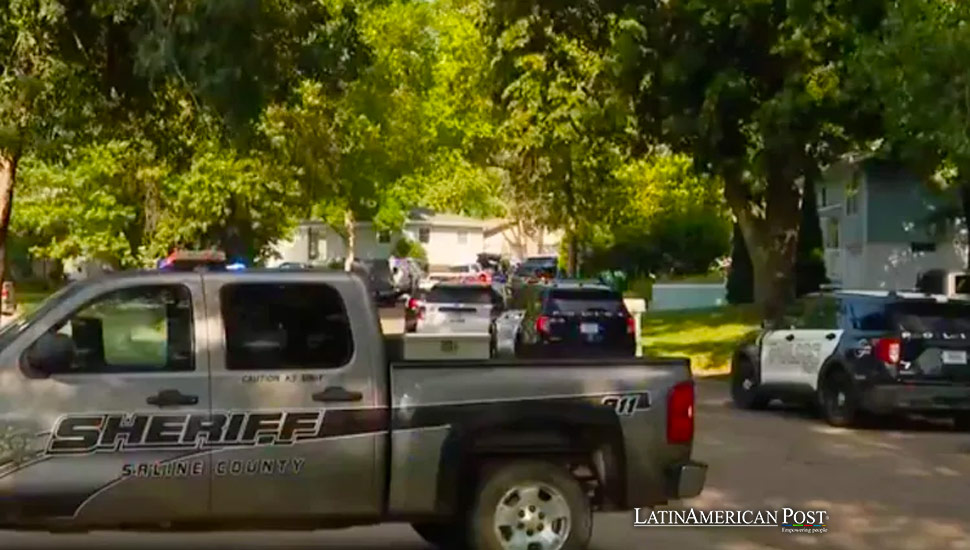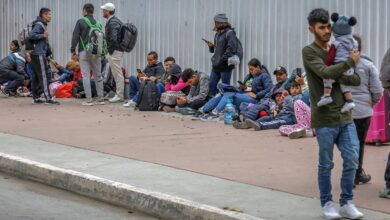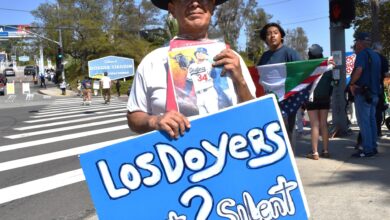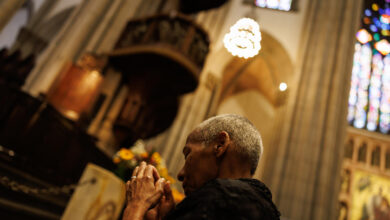Nebraska Shooting Highlights Rising Anti-Latino Hate Crimes in the US

A shooting in Crete, Nebraska, wounded seven Guatemalan immigrants, including four children, in a suspected racially motivated attack, reflecting a troubling rise in anti-Latino hate crimes in the United States.
In a tragic incident that underscores the rising tide of anti-Latino sentiment in the United States, a shooting in Crete, Nebraska, left seven Guatemalan immigrants wounded, including four children. The suspect, identified by police as Billy Booth, reportedly opened fire from his home with a shotgun on a group of immigrants. The attack, which took place on a quiet Friday afternoon, has left the community in shock and raised serious concerns about racial violence and xenophobia in the region.
Crete Police Chief Gary Young revealed that Booth had previously harassed the victims, telling them to “go back to where they came from” and to “speak English.” This context has led authorities to suspect that the shooting may have been racially motivated, although definitive conclusions are yet to be drawn.
The incident in Crete is not an isolated one. Anti-Latino hate crimes in the United States have been on the rise in recent years, fueled by divisive rhetoric surrounding immigration from Latin American countries. Data from the Center for the Study of Hate and Extremism at California State University, San Bernardino, indicates that such hate crimes increased by 2.8% from 2021 to 2022 and by a staggering 41% from 2020 to 2021.
Researchers caution that these figures might be underreported, as many immigrants are hesitant to approach law enforcement due to fears related to their immigration status. The reluctance to report hate crimes exacerbates the problem, leaving many incidents unaddressed and communities vulnerable.
The shooting in Crete is a stark reminder of the dangers faced by immigrants and the urgent need for measures to protect them. The local community, which has a significant Hispanic population, is grappling with the aftermath of this violent act and the broader implications it holds for their safety and well-being.
A Community in Shock
The victims of the shooting ranged in age from 3 to 43 and were all related. On the day of the attack, approximately 15 people were present in the home when Booth began firing from his house. Miraculously, the injuries sustained by the victims were non-life-threatening, and four of the wounded had been released from the hospital over the weekend.
Nebraska State Patrol reported that there was no verbal contact between Booth and the victims immediately before the shooting, adding a chilling layer to the deliberate nature of the attack. The suspect, Billy Booth, later took his own life, leaving many questions unanswered and a community seeking justice and reassurance.
Crete, a small town of about 7,000 residents located 70 miles southwest of Omaha, is home to a diverse population, with Hispanics making up nearly half of its residents. This close-knit community now faces the challenge of healing and addressing the deep-seated prejudices that led to such a horrific event.
Broader Implications and the Need for Action
The shooting in Crete highlights the broader issues of racism and xenophobia that continue to plague many parts of the United States. The rhetoric and attitudes that fuel these hate crimes are often rooted in misinformation and fear, perpetuated by polarized political discourse.
For the victims and their families, the impact of the shooting extends beyond physical injuries. It instills a sense of fear and insecurity, disrupting their sense of safety and belonging. For the broader Hispanic community, it reinforces the harsh reality of living under the constant threat of racial violence.
Addressing this issue requires a united front. Law enforcement agencies need to be better equipped to handle hate crimes, ensuring that they are correctly reported, investigated, and prosecuted. Community outreach programs can help bridge gaps, fostering understanding and solidarity among diverse groups.
Moreover, leaders at all levels must condemn hate speech and actively promote inclusive policies that protect vulnerable communities. Educational initiatives that challenge stereotypes and highlight the contributions of immigrants can also play a crucial role in changing public perceptions.
The shooting in Crete, Nebraska, serves as a grim reminder of the challenges faced by immigrant communities in the United States. As the victims and their families begin the long process of recovery, it is incumbent upon society to reflect on the underlying causes of such violence and take meaningful steps to prevent it.
Also read: Venezuela Resumes Talks with U.S. Amid Election Tensions
By fostering a culture of inclusion and respect and by holding those who perpetrate hate crimes accountable, communities can work towards a future where diversity is celebrated, and all individuals can live without fear of discrimination or violence. The road ahead is undoubtedly challenging, but positive change is possible with collective effort and commitment.
In the wake of this tragedy, the message is clear: hate has no place in our society, and it is up to each of us to stand against it, ensuring that justice, empathy, and humanity prevail.





